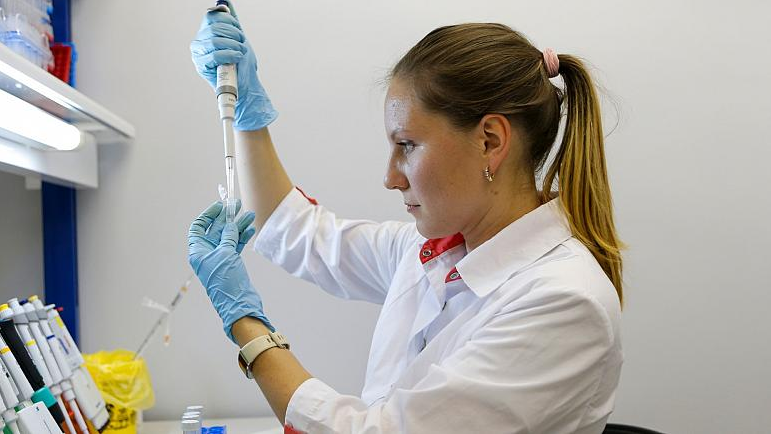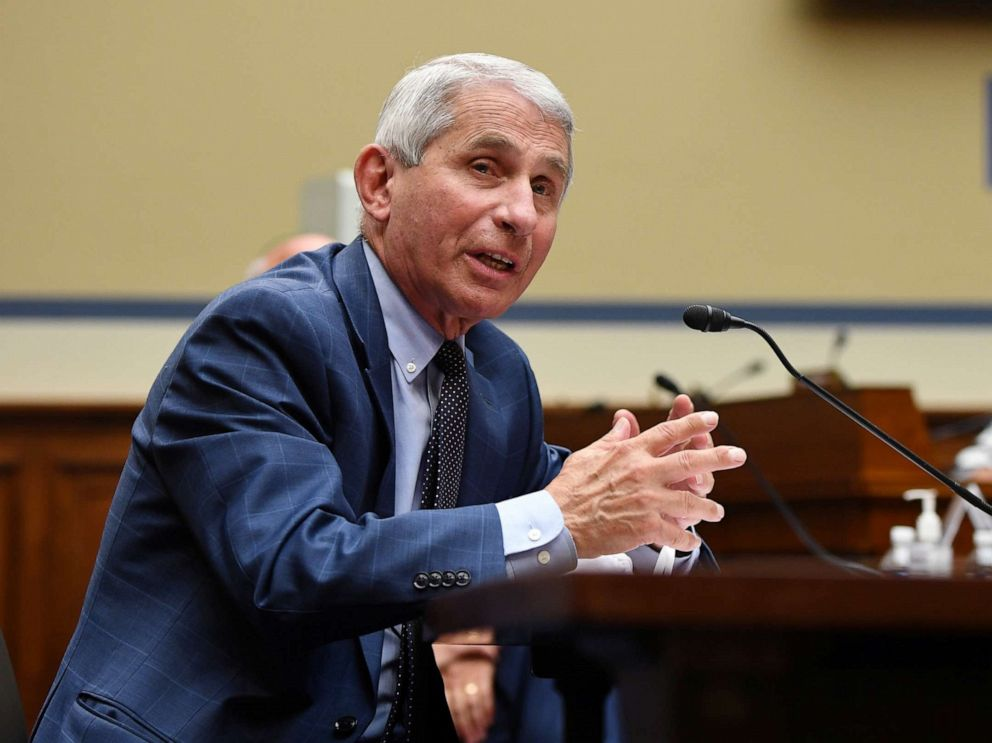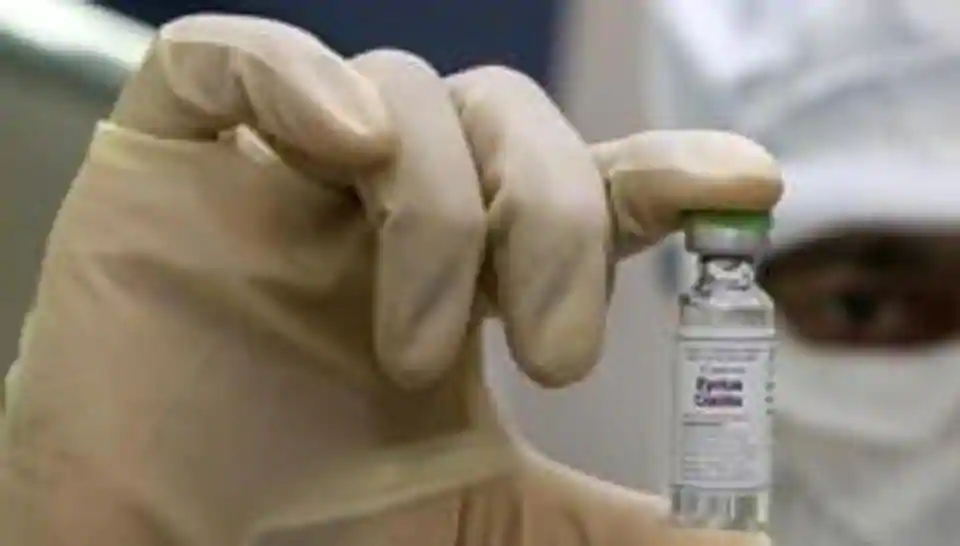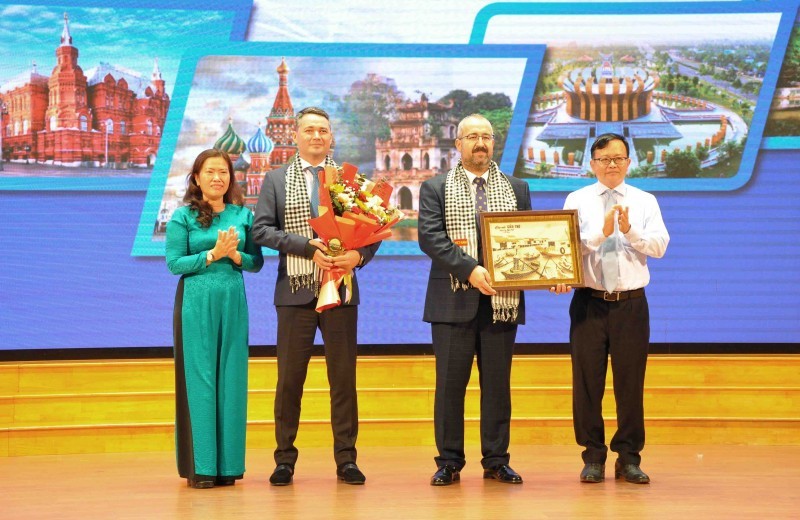Leading scientists question 'highly improbable' Russian vaccine
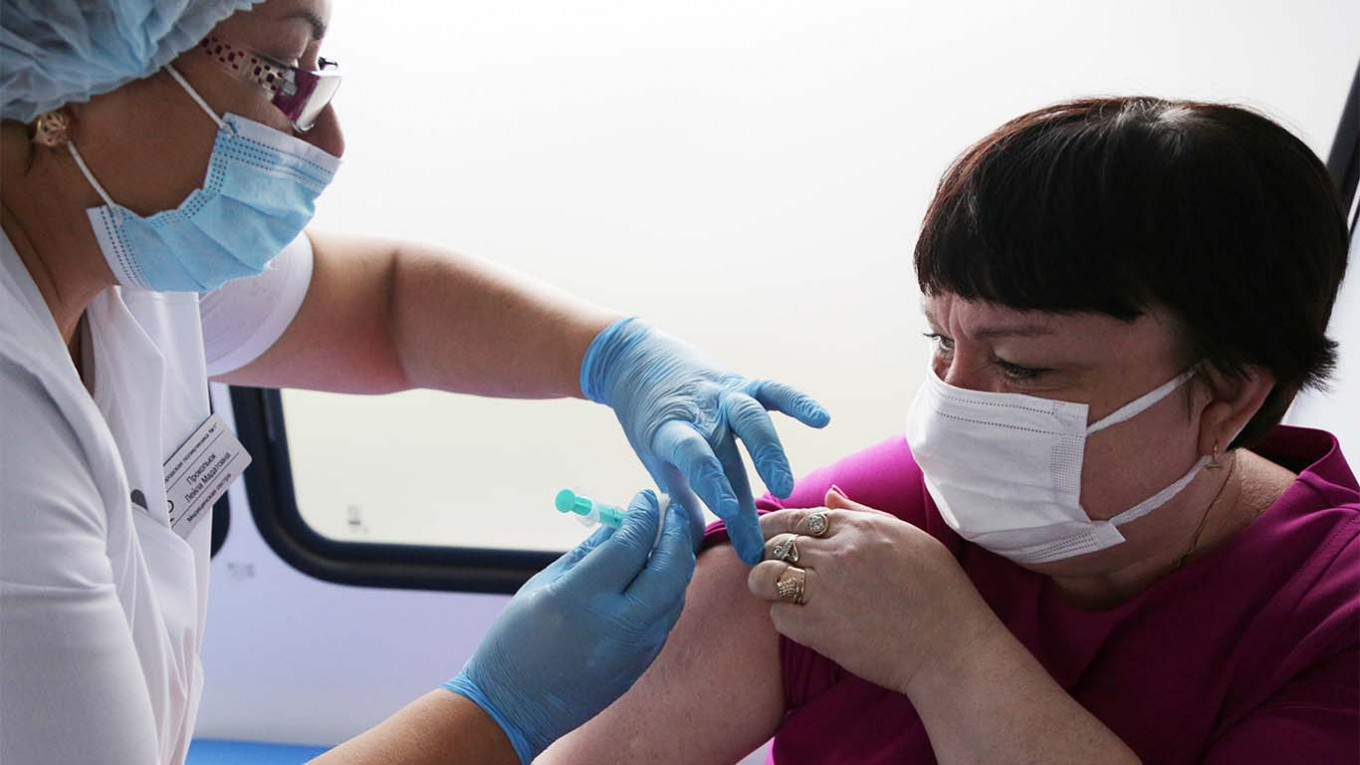 |
| Russia’s findings on its Phase I/II vaccine trials were published in The Lancet last week. Photo: TASS |
A group of prominent scientists and doctors has questioned the results of Russia’s research into a Covid-19 vaccine.
The group said there are a number of unexplained apparent duplications in Russia’s data — published in scientific journal The Lancet on September 4 — concerning the antibody response of volunteers who took part in early stage trials of Russia's Sputnik V vaccine.
“There are very strange patterns in the data,” Enrico Bucci, a biology professor at Temple University in the US who has published an open letter highlighting the concerns told The Moscow Times.
“By strange patterns I mean there are duplicate values for different [groups of] patients … which cannot be,” Bucci said, in reference to results concerning the production of antibodies by groups of patients who had been tested with different formulations of the vaccine.
Russia tested six different vaccine formulations on a total of 76 patients — four groups of nine and two groups of 20.
“Among the [different] groups of nine patients, testing completely different things, you see exactly the same numbers. It’s highly improbable to observe such a huge number of duplications,” Bucci said.
“It’s like if you throw a dice and you get exactly the same sequence of numbers several times — it’s highly improbable,” he added.
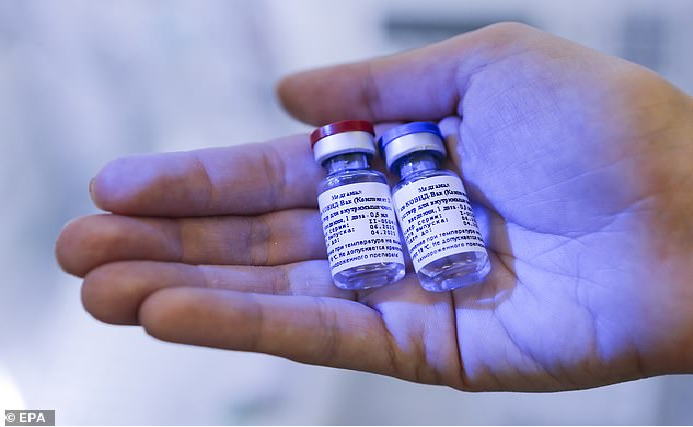 |
| Representative image. Source: EPA |
“The data looks like it's been photoshopped … it’s too similar and too unlikely from a statistical point of view,” Andrea Cossarizza, professor of pathology and immunology at the University of Modena and one of the signatories to the letter told The Moscow Times. He was referring to charts published along with the article in The Lancet.
Cossarizza went on to explain that it would be “very strange” for the same numbers to appear in all the possible experiments in different populations of people who received a vaccine.
Bucci said that published research into other vaccines currently being tested did not show such duplications.
“We looked into it and we didn’t discover anything strange with China’s vaccine, the US vaccine or others like the Oxford vaccine. We didn’t find anything strange ... which is the usual situation.”
To date, the letter has been signed by 19 scientists working at leading universities in Italy, France, Germany, the US and Japan, and Bucci said more have requested that their names be added.
Russian authors, journal criticized for not publishing full raw data
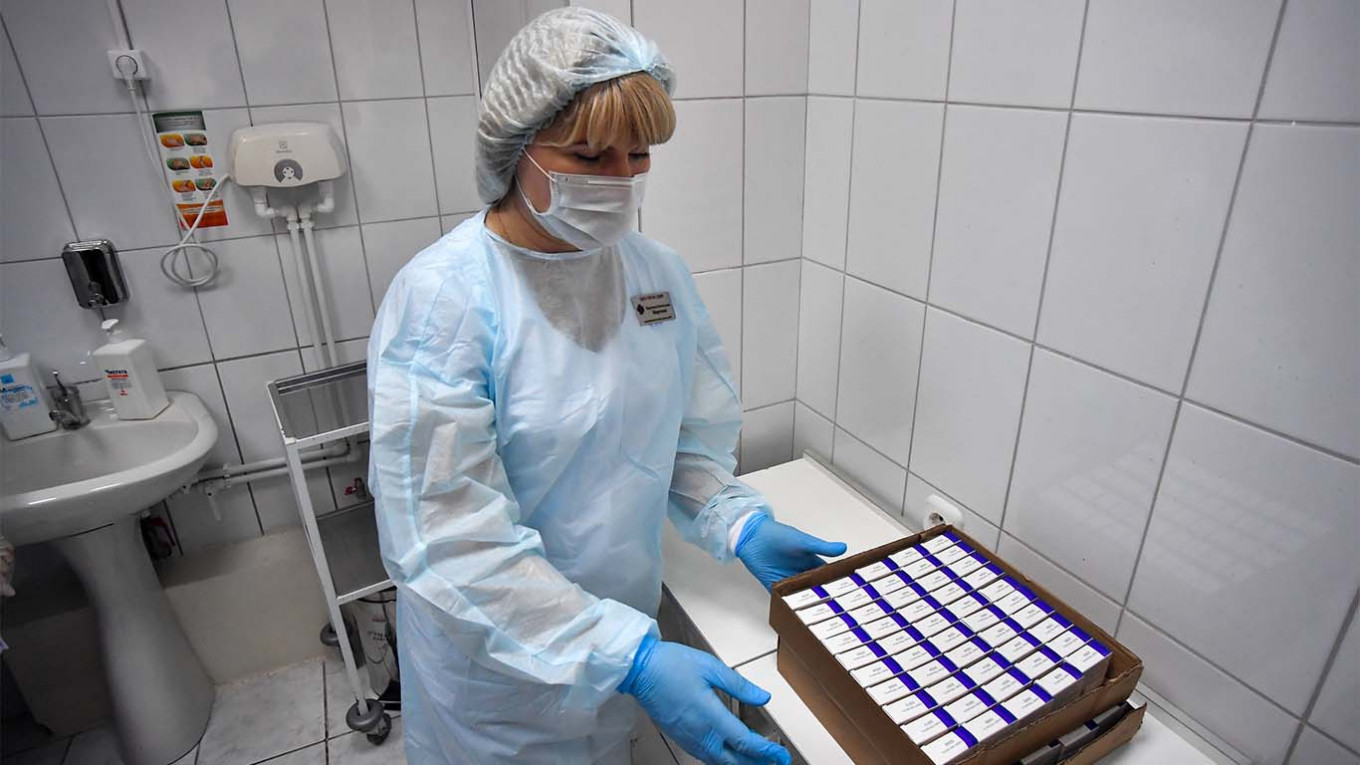 |
| Phase I/II trial included 76 participants and was conducted in June-July this year. Participants developed a positive immune response and no serious side effects, the study’s authors said. Photo: Moskva Mews Agency |
Denis Logunov, who is in charge of developing Russia’s Sputnik V vaccine at the Gamaleya research center told Meduza there were no errors in the information presented in The Lancet article, of which he is the lead author. He said he would not respond directly to the scientists behind the open letter but would engage with The Lancet’s editorial board if they requested clarifications.
In a statement, The Lancet said it "encourages scientific debate on papers we have published ... We have shared the letter directly with the authors and encouraged them to engage in the scientific discussion."
Russia’s findings on its Phase I/II vaccine trials were published in The Lancet last week in the first opportunity for international peers to inspect the research into Russia’s vaccination, which has already received government approval.
But the scientists criticized the Russian authors and the journal for not publishing the full raw data alongside the study. Other published research into coronavirus vaccines has included original data which allows scientists around the world to scrutinize the results.
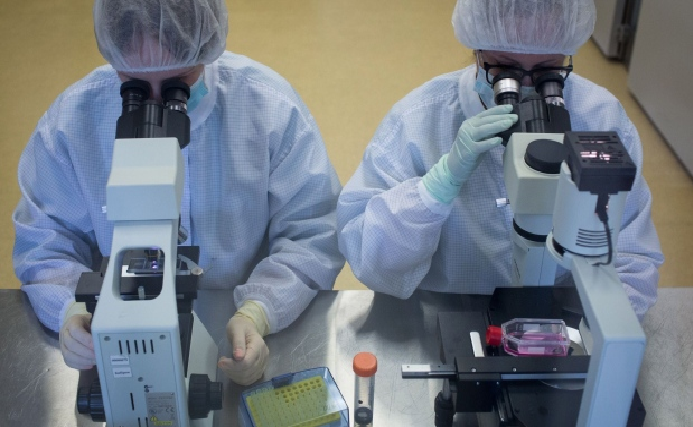 |
| Lab technicians use microscope during production of the 'Gam-COVID-Vac' COVID-19 vaccine, developed by the Gamaleya National Research Center for Epidemiology and Microbiology and the Russian Direct Investment Fund (RDIF), at JSC Binnopharm pharmaceutical complex, operated by Sistema PJSFC, in Zelenograd, Russia, on Friday, Aug. 7, 2020. Photo: Bloomberg |
“I have no idea if [the results] could have been manipulated. We need to have access to the data. There might be an error, there might be an explanation, there might be fraud. We just don’t know. And this is not tolerable for such important research in such an important journal,” Bucci said.
Cossarizza said the results seem like such a clear error it is surprising they were not flagged before publication. “It could be a mistake,” he said, but added that in numerous other cases where an error of a similar scale has been published in a scientific paper, manipulation was at play.
The Lancet came under fire at the end of May after it published a study suggesting that using malaria drug hydroxychloroquine to treat people with Covid-19 could be dangerous. The Lancet retracted the paper in June, after 120 researchers signed a letter voicing concerns about the quality of the data and its analysis.
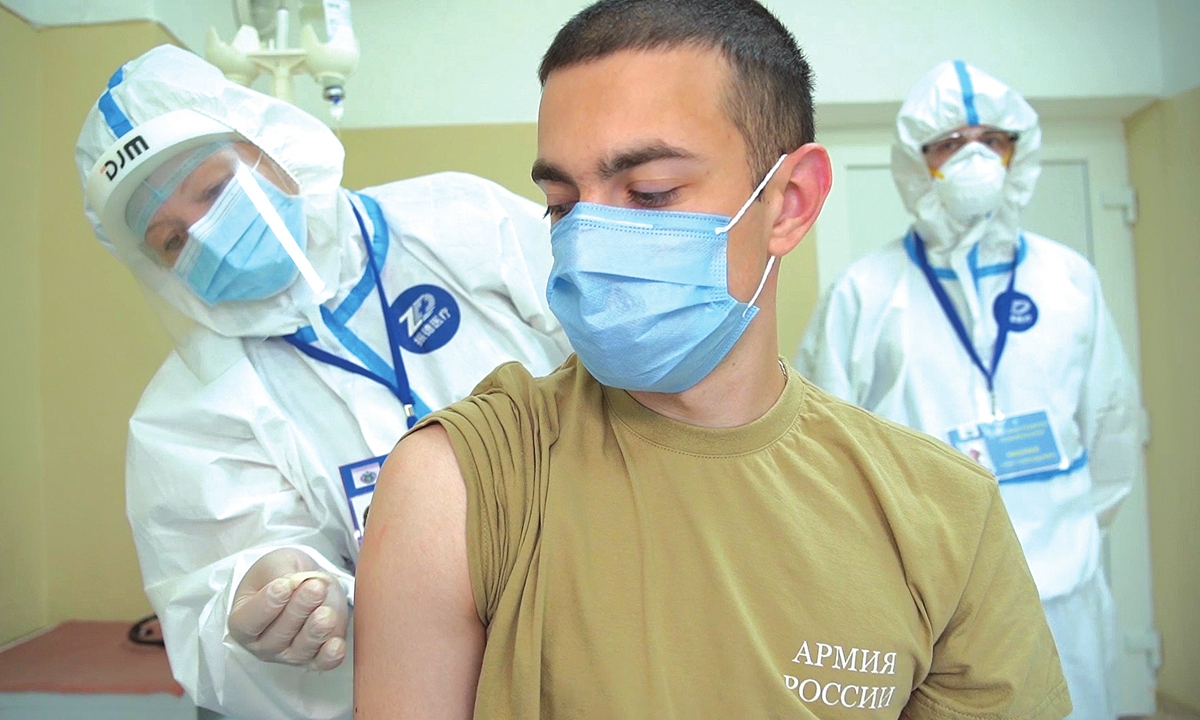 |
| A volunteer takes part in a clinical trial of a COVID-19 vaccine in Moscow, Russia. Photo: VCG |
However, Bucci fears the journal “has not learned the lesson,” as it has been publishing research without the original data “with increasing frequency during the pandemic.”
The letter is designed as a call for The Lancet and the Russian authors of the study to publish the original data or explain the “highly unlikely” duplications in the results.
“This is a request for clarification. It’s not an allegation of anything,” Bucci said.
According to Reuters, last week, Russia published results of its Phase I/II trial, which included 76 participants and was conducted in June-July this year. Participants developed a positive immune response and no serious side effects, the study’s authors said.
A Phase III trial, involving 40,000 participants, was launched on Aug. 26. Around 31,000 people have already subscribed to take part, Health Minister Mikhail Murashko said./.
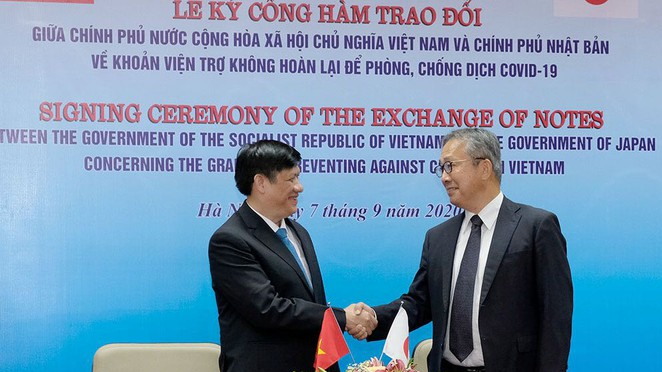 | Japan donates billion dong to Vietnam's fight against COVID-19 Japan provided 455 billion VND to 4 hospitals in order to purchase equipment to enhance medical examination and treatment capacity. |
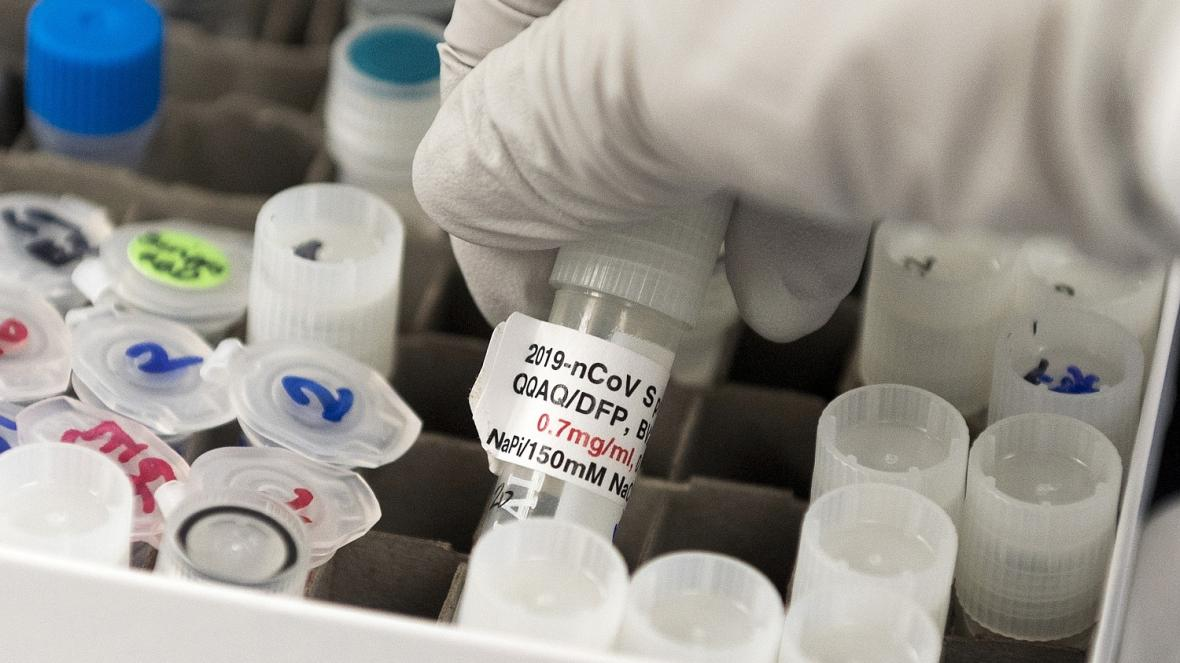 | Coronavirus vaccine updates: Oxford University vaccine trial halted after participant falls ill Clinical trials of one of most promising candidate vaccines, run by AstraZeneca, suspended after patient develops unexplained illness. |
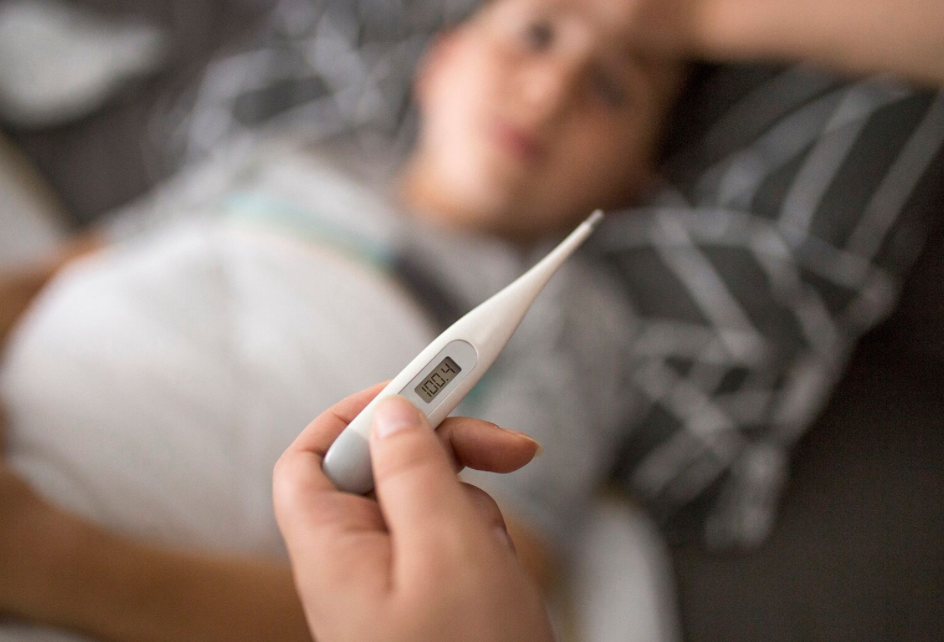 | Post-COVID syndrome may severely damage children’s hearts, the Lancet Multisystem inflammatory syndrome in children (MIS-C), believed to be linked to COVID-19, damages the heart to such an extent that some children will need lifelong ... |
Recommended
 World
World
India strikes back at terrorists with Operation Sindoor
 World
World
India sending Holy Relics of Lord Buddha to Vietnam a special gesture, has generated tremendous spiritual faith: Kiren Rijiju
 World
World
Why the India-US Sonobuoy Co-Production Agreement Matters
 World
World
Vietnam’s 50-year Reunification Celebration Garners Argentine Press’s Attention
 World
World
"Will continue offering our full support to Indian govt": US FBI Director after Pahalgam attack
 World
World
"Great Leader": JD Vance Lauds PM Modi During His India Visit
 World
World
Trump’s Tariff Pause: A Strategic Move from “The Art of the Deal”?
 World
World

